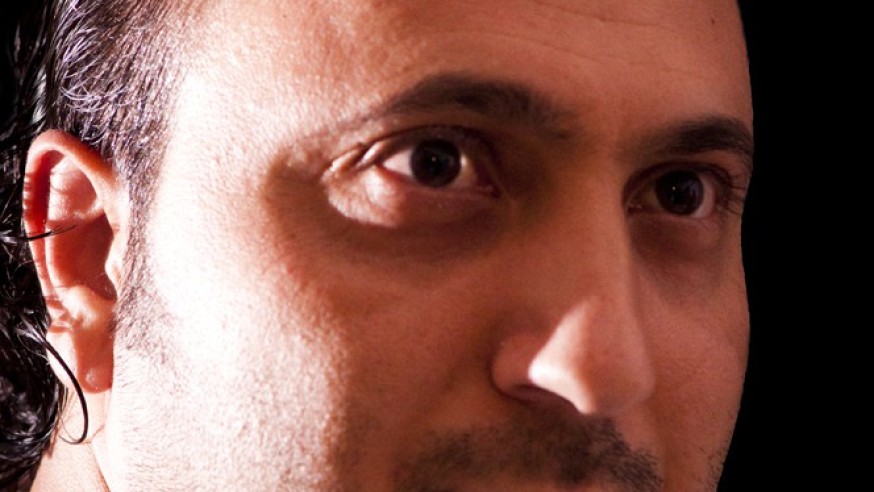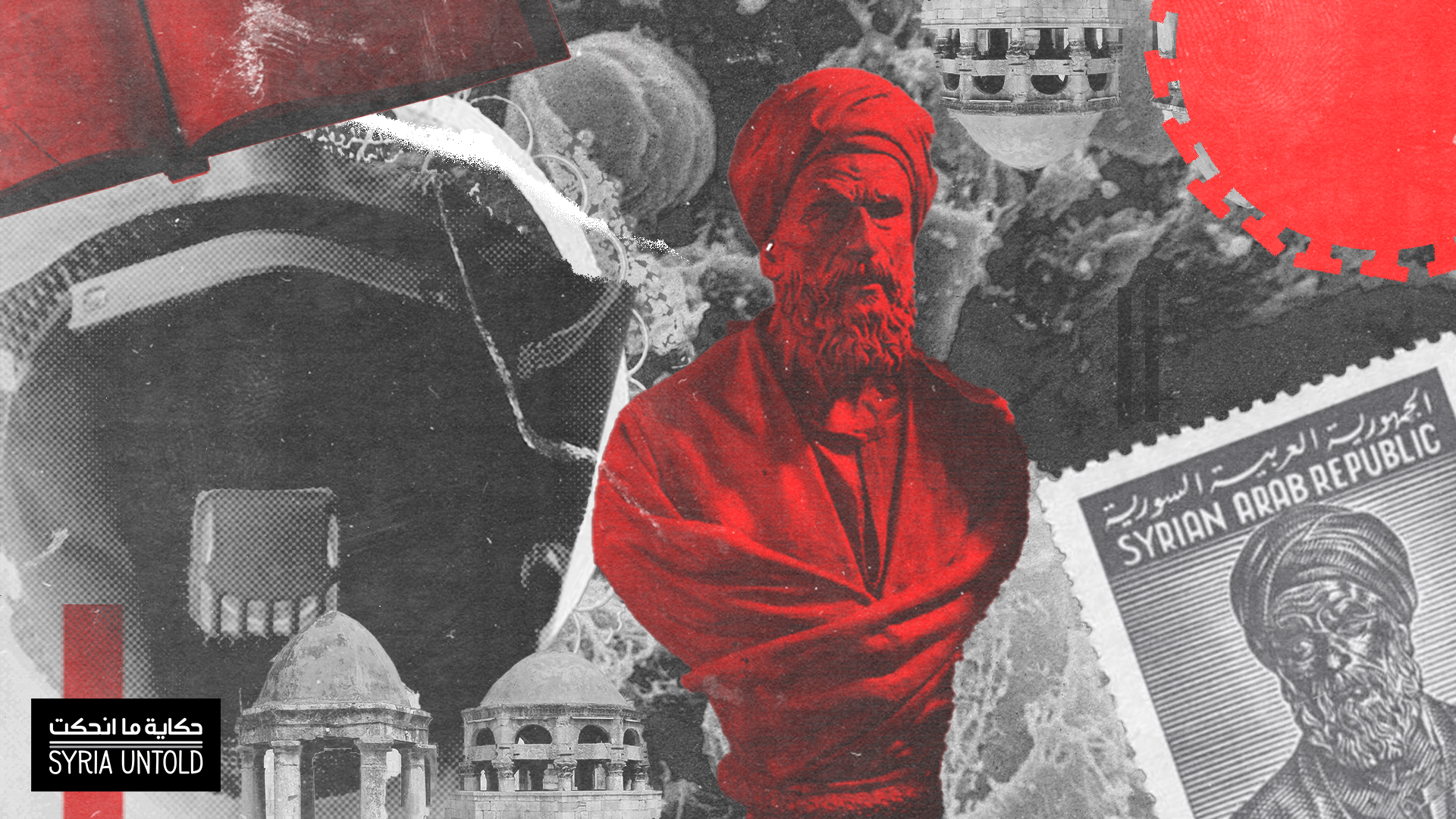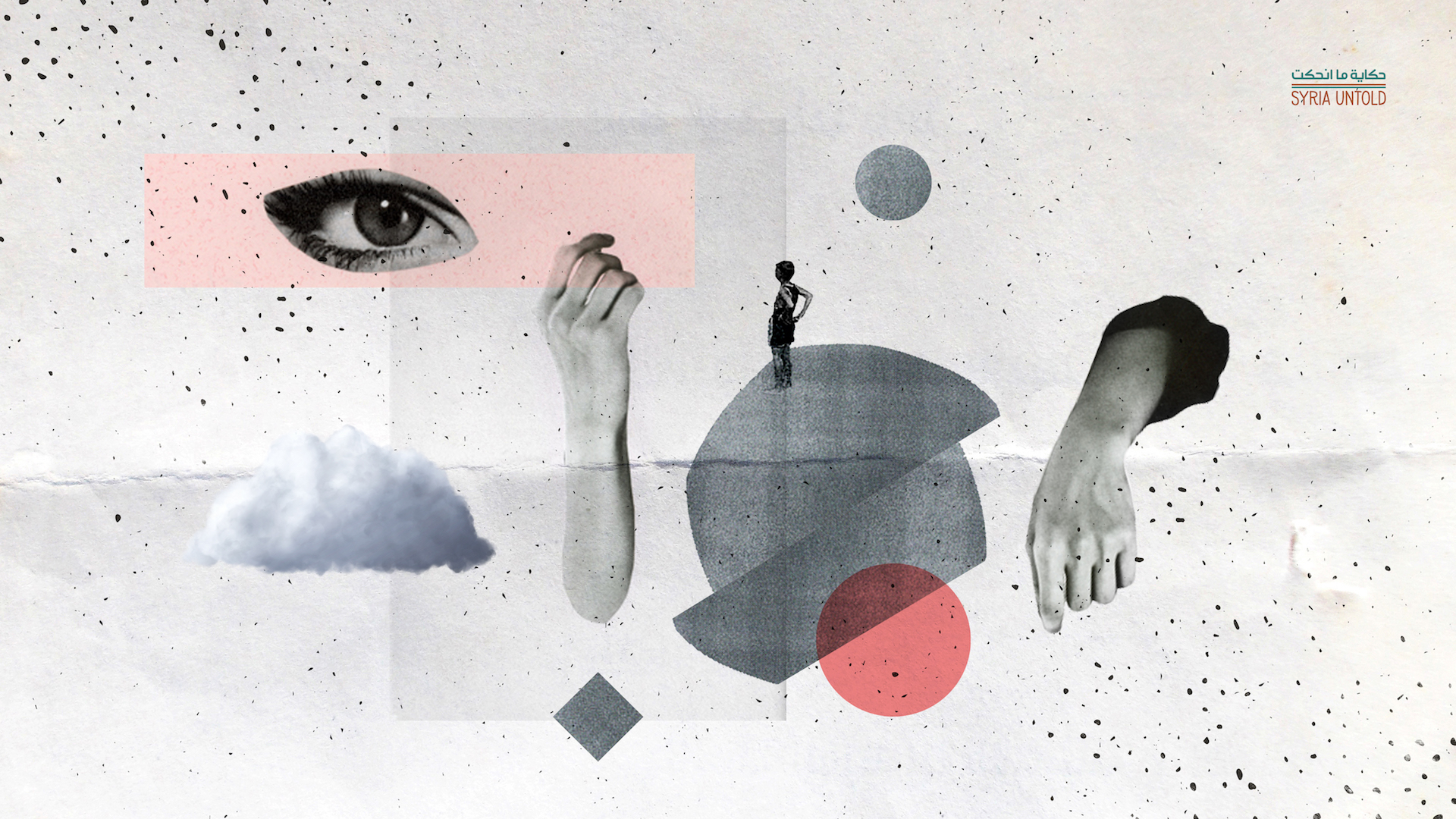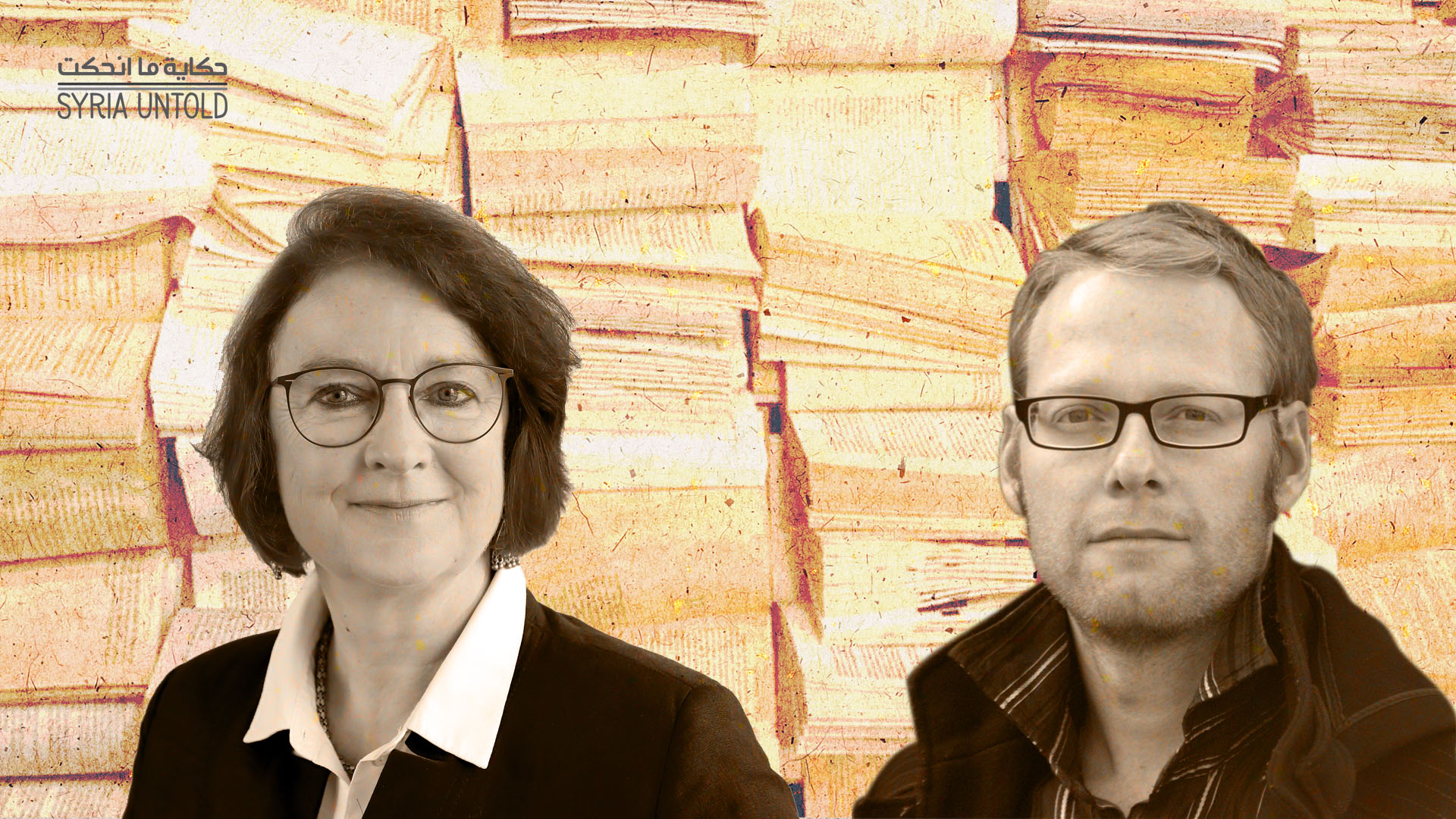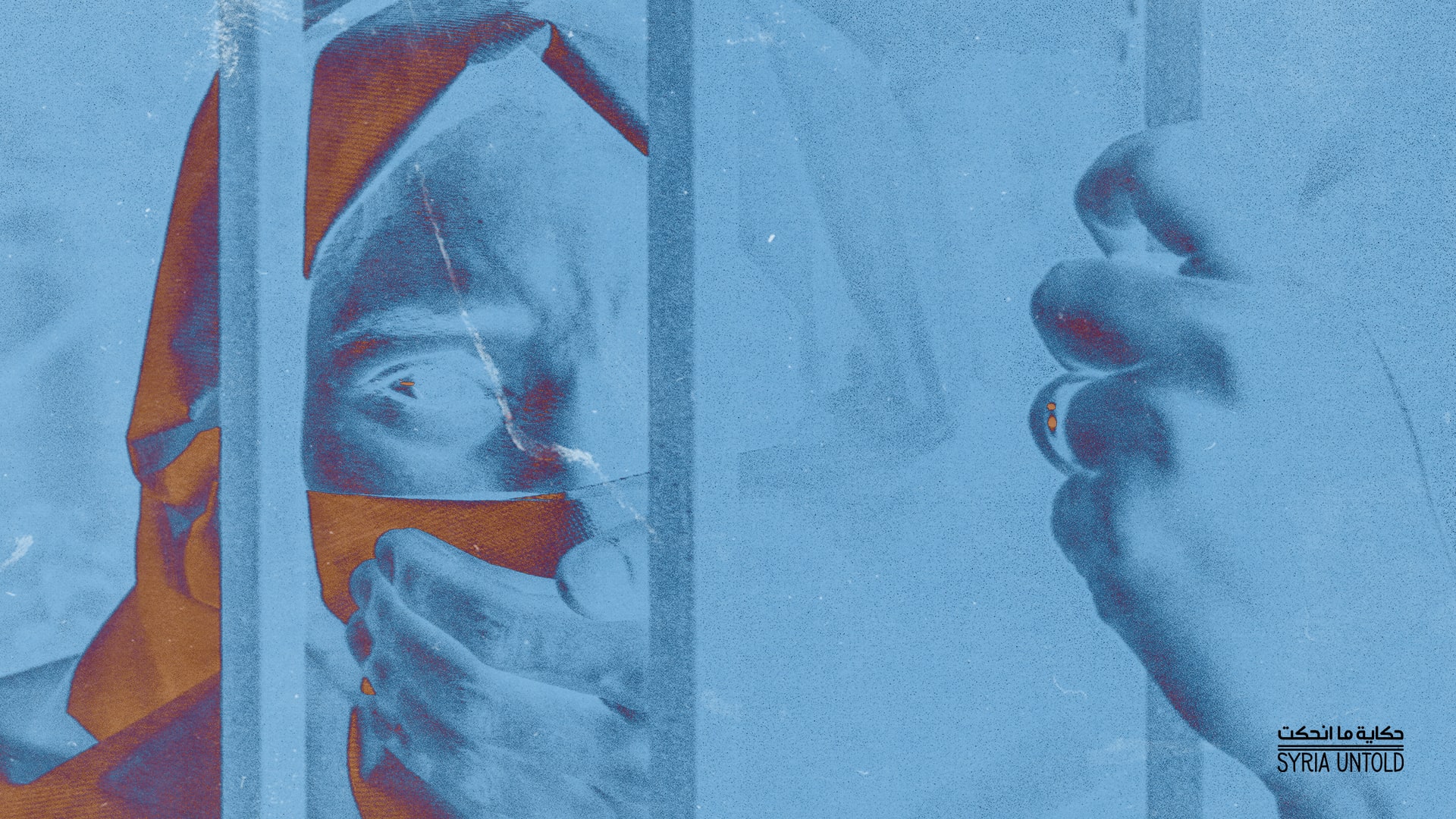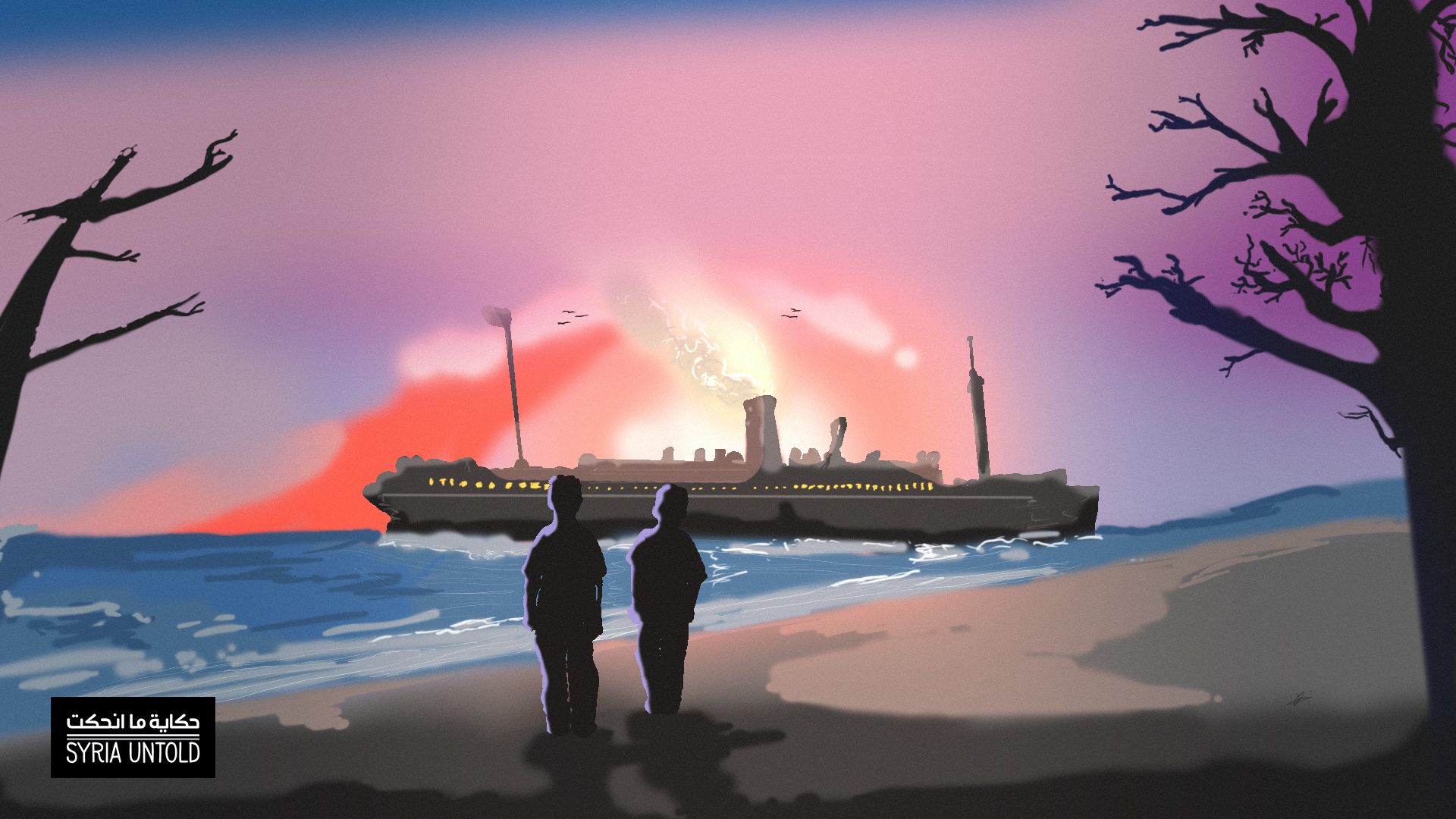The following is a translated excerpt from Muhammad Dibo’s forthcoming Arabic-language novel The Traitor.
She was already awake when her mother called her out of bed to help pick tobacco leaves. An hour earlier, she woke to the throbbing pain that she knew well, a pain that sometimes came to her as a messenger. It only ever foretold disasters.
Something bad is about to happen, she told herself. She hoped her intuition was lying to her, though it never did.
“Kiffah, we need to pick the leaves before the dew flies up and it gets too hot.”
She fled from her pain at the sound of her mother’s voice. Kiffah hadn’t before noticed the poetry stored within her mother. How does dew fly?
Though Kiffah had been inundated with her mother’s vocabulary for forty years, she hadn’t before noticed the scents of basil and jasmine distilled by her simple, poetic words. Does pain make people more observant to the things they never noticed before, of the sharp beauty lost by repetition and habit? Or maybe the threat of losing loved ones makes them realize the depth of what they might lose. Maybe people cling to it in those last moments for fear of losing it.
She stretched her body over the mattress and then her arms in the air, in an attempt to appear as if she had just woken up. She ignored the screams of pain rushing deep in her heart. Everything had to appear normal. She couldn’t let her mother sense anything unusual. You’ll find out when everyone else does, from them and not from me. After all, people don’t forget the faces of those who tell them the worst news of their lives. She dodged the armies of pain, its soldiers advancing through her veins. They assaulted her body and tried to break it. They were like vines crawling up the stone walls of a house, pressing against the windows before her eyes. She wasn’t sure she could fight back any longer.
Returning to Abu Alaa al-Maari in our year of plague
13 May 2021
A Syrian visiting a Nazi camp
25 September 2019
The first sharp rays of sunlight hit her face through the bedroom window. Kiffah closed her eyes and bright orange waves danced beneath her eyelids, awakening some distant memory buried by time. It stretched out before her, an unexpected guest. She wished she hadn’t closed her eyes. Now she was trapped in the clutches of those colors from her childhood, reborn in eyes turned upwards toward the sun. The blue sky yielded to orange, peppered with crystal stars and imaginary creatures that nobody but her had seen since she named that space the Orange Continent. She first discovered it while playing with Bakr and Aisha on the banks of the Orontes River in Hama. They had spent part of their childhood in that city before the family fled, ending up in Jabal Zeitoun, a village on the coast. Kiffah still lived in the village, where she surrendered to her memories.
She saw the boys play fight and throw themselves from the water wheels into the river. Kiffah, Bakr, Aisha and her little brother Ali lay down in the grass. They stared up at the sun, signalling the start of another competition: Who can look at the sun the longest?
Kiffah closed her eyes and lost. The colors of her forgotten little game swelled and pulled her into their labyrinths. She opened her eyes then closed them again to make sure of what she was seeing. She held her hands over her eyes to block out the light.
“I can see with my eyes closed,” Kiffah said once they finished the game. “Who else can?”
“Nobody can see with their eyes closed,” said Ali.
“Let me try!”
“Kiffah, what do you mean you can see? What do you see?” Bakr asked.
“It’s a secret, I can’t tell you.”
Ali went to his parents, who were sitting in the grass with Bakr and Aisha’s family, to ask if it was possible for someone to see with their eyes shut. With Ali gone, Bakr pleaded with Kiffah to tell her how and what she saw. She told him as if she was revealing top secret information: when she looked at the sun she discovered a whole continent of orange color, swirling with sweets, animals, rabbits and fairies. She told him to look at the sun and shut his eyes. When he did, red and orange glimmered beneath his eyelids. He didn’t see the creatures, though. Just as she was about to show them to Bakr, Ali returned with the official answer, handed down to him from the adults.
“You can’t see with your eyes closed!”
Bakr responded, smiling. “But we did see, ya Hourani ya Akhal,” he taunted.
From then on, whenever the two of them sat beneath the sun by the Orontes, always the water wheels groaning as they spun, Kiffah transformed that orange expanse into a brilliant fantasy world. She’d tell Bakr to shut his eyes and look up at the sun, then narrate stories about the creatures that she alone saw in the Orange Continent. They were the same creatures that glimmered today beneath her sad eyelids. They reminded her of memories she thought she had lost long ago: she and Bakr lying on a carpet of clouds watching imaginary orange creatures on their secret cinema screen. Aisha and Ali were banned. Kiffah and Bakr swam in a world of fog, basil, the Orontes, of water wheels and exhilarating dusk. Hand in hand, they disappeared into the Baroudieh neighborhood, into Zanbaqieh, Abi Fidaa, al-Amirieh, Dabbagheh, al-Hadher, wandering until they heard the clangs of metalworkers and the scents of barazeq cookies reached their noses. They entered Souq al-Tawil, its walkways shaded by a thin roof. She looked at it, astonished, walking past the shops of Barnawi, Abu Yassin, al-Daqqaq, Abedin, Abu Hussein, Qeitaz and Efamia, the al-Asaadi Bath, the smell of spices sinking into her nose. The flavors of maghtout, halawat jibn and shaibiyat pierced her tongue. Kiffah and Bakr stumbled into other neighborhoods on the pretext of discovering them, their joint subconscious pushing them to lengthen their journey as much as possible before arriving at their own street in Hawarneh. They passed the Eido Bakery just before the Hawarneh Mosque. Then there was the church, then Akram al-Hourani’s house. They crossed this infinite space, soon surrendering to the storybook nestled between her grandmother’s boxes and jars of preserves, beneath the piles of okra and eggplant. This house was their sanctuary, where they wished to disappear from reality and memory.
Kiffah shook her head and pushed Bakr from her thoughts. She was surprised that he was still there, alive in her memories after all these years. Why had he come back today in particular? What did he want? Did he come back to pollute my grief, or to heal me?
My childhood friend, now a ghost
18 September 2020
What did exile change in our narratives?
26 January 2021
Fleeing his ghost, she went to her mother in the kitchen. “Good morning, yamma.” Kiffah didn’t dare look into her mother’s eyes for fear she’d read the oncoming catastrophe in them. She grabbed a piece of thick cloth, the sort that people in the village used for gathering tobacco leaves, and walked outside to the field.
She inhaled the scent of the sun on the tobacco plants and fresh dirt. She ran her fingers over the leaves, clear dew drops sitting on them like the nipples of village teenagers. For a moment she felt like she didn’t belong to this place.
She began picking the leaves, caressing them from the stem with a tenderness that her grandmother taught her long ago. “The leaves need love and support just like people do,” she told Kiffah. “We pick them with love from their mother’s stem, just as we care for a child when weaning them.”
Her grandmother’s words repeated themselves as Kiffah picked the leaves, pushing them down gently as if to say sorry. She gathered them in one hand, using the other to keep removing the leaves, stacking them atop one another. When the weight of the leaves became too much, she placed them on the piece of cloth on the ground for her mother to pick up later. Her mother would thread a length of twine through a long tube made specifically for this purpose, then tie a knot at the end to prevent the green leaves from slipping off. Then she’d thread together the tobacco leaves one by one, forming a skirt—at least that’s what Ali called it when he was little, adorning himself with a string of leaves like a necklace or looping one around his waist, imitating how girls walked in their skirts and dresses.
When she and Ali grew older, and whenever Ali was home, he’d never let her go out into the tobacco field. He woke up before her, picked the leaves and hung them on the balcony, then made coffee. The smell would reach Kiffah, sprawled out across her bed enjoying the first rays of sunlight. She’d wake up and join Ali, taunting him as soon as they finished:
“Yalla, go work on your necklace. When you get married I’ll give you the best necklace of tobacco leaves.”
“Ya doctora, when you get married I’m giving you a gold necklace, none of this tobacco,” he’d say.
“What’s wrong, you already want to throw me out of your life?” she’d laugh. “How are you going to find a girl to marry anyway?”
Ali’s distant laughter pained her this morning. Her face yellowed and her hands trembled, sweat dripping down her body. She couldn’t bring herself to thread the tobacco leaves, instead forcing herself to get up from the ground. Could her mother read her pain?
“Mama, I’m not feeling well. I’m going back to sleep a little. I have a morning shift at the clinic today, maybe I can get a little rest before going.”
An hour later, Kiffeh’s mother had finished hanging all the tobacco leaves to dry on bright green threads. She began carrying them inside the house, which consisted of three rooms surrounded on all sides by balconies that looked out over the olive groves and tobacco fields.
As she carried the last thread of leaves inside, a group of village women suddenly materialized. They entered the house one by one, silent, donned in the same black clothing they always wore due to the death that had colonized the village like a plague. There were unsaid words on their tongues, words they needed to say without knowing how or where to start.
She saw the guests. “Dear God, we’ve had our fill of death already. Who was martyred today?” she asked, still holding the string of tobacco leaves.
From the blackness of their clothes, she knew that death had taken one of Jabal Zeitoun’s young men. It seemed that death had taken up residence in those villages, clinging to the mountains like one of their own. They accepted death’s presence as simply as the rain or the weather. It disturbed death that they surrendered to him as they did, like he was fighting an unfair battle, one with no honor. He didn’t like being pit against children or the weak and submissive, so he punished them with more death as if to humiliate them for depriving him of the joy of victory. When they didn’t respond, he was surprised at the depth of surrender nestled within their souls. He realized that they were already dead long before he laid his hands on them, so he doubled the pace of his work, sending them to their graves before the smell of their living corpses could putrefy. And because the dead do not realize their own dying, they coped with their pitiful little battle with death by beautifying and deifying it. Each village had its own Facebook page listing local martyrs. The villages competed among themselves over who could have the highest number of deaths. Jabal Zeitoun was the current winner, with fifty martyrs so far, though on this particular day there was a fifty-first whose name the women were hesitant to tell Kiffah’s mother. How do you tell a mother of her son’s death?
Syria’s lucrative detainment market: How Damascus exploits detainees’ families for money
13 April 2021
From Ottoman Syria to Argentina
02 August 2021
The women remained silent to the mother’s words. She already knew the answer anyway, though refused to believe it and didn’t want to hear. She repeated her question with a desperate hope, though her legs and her body began to crumble. There was still no response, except for the tears of the women standing in her home, their black clothes and a silence shrouded in deep sadness. Suddenly everyone in the neighborhood heard a sound like an animal’s shriek when it meets the blade of a knife, a mixture of sobbing, bewilderment, rejection and disbelief, of unanswered questions and rebuke against both God and people, the living and the dead.
“Please don’t tell me Ali died. Ali didn’t die, he didn’t die. Where are you, Ali? Come, Ali, don’t go. Oh my love, Ali, where did you go?”
From inside the house, Kiffah responded to her mother meekly, in a tired voice. She felt a sort of regret, as if her prediction itself was the cause of Ali’s death.
“He died, Mama. Ali died. He left us.” She began to cry.
They blinked, and a Syrian flag was being tugged over the roof of the house. Someone hung a big sign at the main entrance below: “WE CONGRATULATE THE AL-HAKIM FAMILY ON THE MARTYRDOM OF THEIR SON ALI, A SACRIFICE FOR THE HOMELAND AND THE PRESIDENT.” This one was followed by banners on the walls of their house and neighboring homes, celebrating “the groom of the homeland,” as one proclaimed. Other banners materialized at the entrances of the village, while a handful of eager young men tied bouquets of flowers to prepare the house for a proper martyr’s funeral, in a display of solidarity.
Thanks to Ali, Jabal Zeitoun was now two martyrs ahead of the surrounding villages. Because this was significant currency, the first to accept condolences for the martyr were the heads of the municipality, the school, the government departments and the local party official, who behaved as if they themselves were the family of the gloriously deceased, seeking to garner a little pride and glory. They received the mourners with murmurs of “The martyr died, God bless him in his passing,” “O Lord, we must die, all of us, for the homeland and the President,” “Either we die like this, or not at all” and “He is crowned with pride.”
Every such funeral became a national spectacle. The coffin would make its grand entrance in a car adorned with flowers, laurels and pictures of the President, on top of which was a microphone blaring the words of God and sowing reverence in people’s souls. Leading the procession would be hundreds of motorcycles bearing bouquets of roses surrounded by hastily prepared posters that jumbled together pictures of both the President and the martyr. When today’s car arrived in front of the house, the crying rose, interspersed with shouts of “takbeer” and “Allahu akbar!” and bursts of bullets welcoming the martyr. The village sheikh repeated “There is no god but God,” followed by “The martyr is beloved of God” from the lips of the ecstatic crowd, both mournful and proud. They could hardly hear the bullets fired one after another into the air.
The procession headed toward the family’s home, though security personnel planned to bar anyone from actually going inside, to prevent the tide of sadness that usually accompanies such funerals from obstructing their plans. The coffin made its way, carried on the palms of the soldiers in their military uniforms, gunshots echoing, followed by their comrades-in-arms, officials and villagers. At the head of the pack was a high-ranking officer tasked with handing Ali’s father the flag of the Republic as a “gift from the President,” who somehow shared in their pride for Ali. They waited for this officer at every funeral, basking in his voice. They were intoxicated by his loud voice vibrating off into space. They wished they could be the ones visited by death now. This was the moment that the people in Jabal Zeitoun waited for, the voice informing them of the President’s pride in their village’s son, Ali al-Hakim. Although the rank of the announcing officer diminished funeral by funeral due to the sheer number of men returning home dead from the battles, those who enjoyed the sound of his voice remained determined to listen. Then their own numbers began to decrease from one funeral to the next, their faces twitching restlessly, not daring to reveal the fear within their hearts for the unknown. Perhaps out of a similar fear, Kiffah’s grandmother had long ago warned her from falling captive as they did.
Kiffah held her mother’s hand and waited for her brother’s body to arrive. She read another new sign planted in front of the house, congratulating him. “THE MARTYR ALI, MARTYR OF THE HOMELAND AND THE ARAB NATION, THE GROOM OF JABAL ZEITOUN.” A man in a dark uniform advanced through the crowd. He had sharp features, sullen. Kiffah’s chest tensed, and automatically she squeezed her nostrils shut with her fingers as if a foul shit smell had suddenly wound its way to her. Quietly, she exhaled, closing her eyes. She wanted man’s negative energy to dissipate. She sensed danger approaching her.
She monitored him from afar, watching how everyone seemed to fear him, how everyone grovelled to him and made way for him as he pushed through the crowd. He seemed to relish the way they showed defeat, the way he held power over others. He reached where the party secretary, municipal leaders and official institution directors were standing and whispered something into their ears, something that prompted wide eyes and raised eyebrows. Then he signalled for the men to follow him, bringing Kiffah’s father and some relatives to a nearby room. The door closed behind them.
About half an hour passed. The men came out of the room without her father. On their faces were grimaces, anger and expressions that Kiffah couldn’t parse. Maybe it was a mixture of contempt and humiliation.
The officials whispered a few words into the ears of the young men who had, just a little while ago, overseen the production of this funeral. At first glance, they didn’t seem to believe what they were hearing. Their pupils dilated and their bodies shook. When they received confirmation after asking yet again if what they had heard was correct, anger rose in their faces and insults tumbled out of their mouths. They pulled down the flag that they had hung from the roof of the house, along with the banners and signs they had erected only an hour earlier. Their faces took on a look of absolute contempt as if ready to kill. They said things the village hadn’t heard before.
“Looks like it runs in their family.”
“What’s wrong with these people?”
The mourners filed away one by one, leaving only a few neighbors and family remembers in the house. Those who remained suddenly found themselves at a loss. Should they go, too? They sympathized with this mother and her adult daughter. Still, though, they feared the insults and other threats they might expose themselves to if they went against the crowd.
When Kiffah saw the crowd of mourners thinning, she assumed they were going outside to meet her brother’s funeral procession. She let go of her mother’s hand and went to the door to make sure. Outside were angry voices shouting a word she couldn’t believe at first. She got closer.
“Who is this ‘traitor’ you’re talking about?” she asked.
A heavy moment passed. She heard a man’s angry voice.
“Ya doctora, your brother didn’t die a martyr. He was a traitor. God has no mercy on traitors.”
She didn’t respond.


